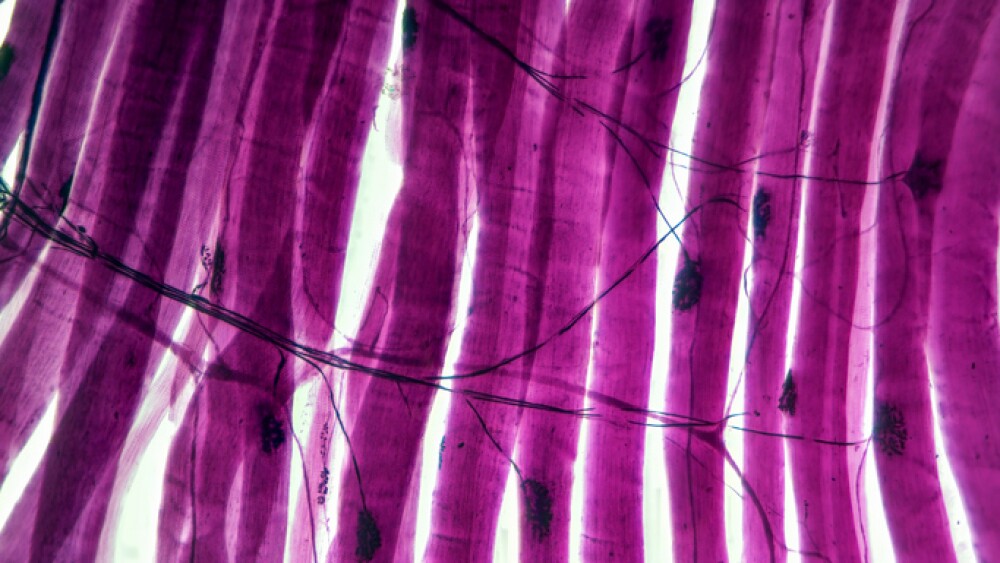AIM ImmunoTech Inc. (NYSE: American AIM) (“AIM” or the “Company”), today announced the presentation of data from the ongoing Phase 2a clinical study at Roswell Park Comprehensive Cancer Center evaluating AIM ImmunoTech Inc. drug candidate, Ampligen® (also known as rintatolimod) as a component of treatment for colorectal cancer metastatic to the liver at the American Association for Cancer Research (AACR) Annual Meeting 2022.
Primary endpoint of the study was met, evidenced by increased CD8a expression post-treatment (p=0.046)
Data suggest that CKM regimen with Ampligen may be useful to enhance effectiveness of immunotherapies
Data from clinical research conducted at Roswell Park Comprehensive Cancer Center presentedin late-breaking poster session at the AACR 2022 Annual Meeting
OCALA, Fla., April 11, 2022 (GLOBE NEWSWIRE) -- AIM ImmunoTech Inc. (NYSE: American AIM) (“AIM” or the “Company”), an immuno-pharma company focused on the research and development of therapeutics to treat multiple types of cancers, immune disorders, and viral diseases, including COVID-19, the disease caused by the SARS-CoV-2 virus, today announced the presentation of data from the ongoing Phase 2a clinical study at Roswell Park Comprehensive Cancer Center evaluating AIM ImmunoTech Inc. drug candidate, Ampligen® (also known as rintatolimod) as a component of treatment for colorectal cancer metastatic to the liver at the American Association for Cancer Research (AACR) Annual Meeting 2022, being held April 8-13, 2022, in New Orleans, Louisiana.
The presented research was led by Roswell Park medical oncologist Sarbajit Mukherjee, MD, MS, in collaboration with senior investigator Pawel Kalinski, MD, PhD, Chair of Immunology at Roswell Park.
Title:Initial results of a phase II study evaluating a chemokine-modulatory (CKM) regimen in patients with colorectal cancer metastatic to the liver
Presenter: Sarbajit Mukherjee, MD, MS
Based on preclinical data and previous reports showing the prognostic value of intratumoral CD8+ T cell (CTL) in colorectal cancer (CRC) outcomes, it was hypothesized that systemic infusion of the combination of IFNα-2b with Ampligen (selective TLR3 ligand for i.v. use) could reprogram the local balance between the CTL- and regulatory T cell (Treg)-attracting chemokines and the resulting patterns of immune infiltrates in liver tumors.
This early Phase 2a trial studied how well celecoxib, recombinant interferon alfa-2b, and Ampligen work in treating patients with colorectal cancer that has spread to the liver. The study was designed on the basis that 1) celecoxib may stop the growth of tumor cells by blocking some of the enzymes needed for cell growth; 2) Recombinant interferon alfa-2b is a substance that can improve the body’s natural response and may interfere with the growth of tumor cells; and 3) Ampligen may stimulate the immune system, so that giving celecoxib, recombinant interferon alfa-2b, and Ampligen together may help reprogram the tumor microenvironment and make the tumors more responsive to immune therapy.
For the study, recurrent/metastatic CRC patients with unresectable liver metastases amenable to biopsy were eligible. Patients had prior treatment (Rx) with fluoropyrimidine, irinotecan, oxaliplatin, and an anti-EGFR targeted therapy (if RAS wt), or contra-indication to such. Patients received IFNα-2b IV (20 million units/m2 IV daily) and Ampligen (200 mg IV daily) plus oral celecoxib (200 mg twice daily) on days 1, 2, 3, 8, 9, 10, 15, 16, and 17. Response assessment was done via liver biopsies (pre-Rx and on day 24 ± 4 days) and CT imaging (RECIST v1.1) on Day 46. The primary endpoint was the change in CD8+ T-cells before Rx, with that seen post-Rx (measured by quantitative RT-PCR as a ratio of CD8α to a housekeeping gene, HPRT). With a sample size of N=12 evaluable pts, the study design had a 90% power to detect a 0.77 standard deviation increase (pre- to post Rx) at a significance level of 0.1. Nineteen patients with microsatellite stable (MSS) CRC were enrolled in the study between Apr 2018 and Oct 2020, and 12 were evaluable for the primary endpoint.
“The primary endpoint of this study, a significant increase in CD8a expression post-treatment, along with increases in CTL-attracting chemokines coupled with a decrease in a key Treg/MDSC attractant indicate a positive immune effect on the tumor microenvironment and suggest this CKM approach has the potential to increase tumor responses to checkpoint inhibitors”, commented David R. Strayer, MD.
Summary of Key Findings:
- The study’s primary endpoint was met, evidenced by increased CD8a expression post-treatment (p=0.046).
- Saw increase in the CD8a/CD4 (p=0.03), CD8a/FOXP3 (p<0.01) and GZMB/FOXP3 (p<0.01) ratios.
- The expression of CTL-attracting chemokines CCL5 (p=0.08), CXCL9 (p=0.05), and CXCL10 (p=0.06) were increased, while expression of the Treg/MDSC attractant CXCL12 (p=0.07) was decreased post-treatment.
- Median OS was 10.5 (90% CI 2.2-15.2) months, and the median PFS was 1.5 (90% CI 1.4, 1.8) months.
- No tumor responses were seen. The treatment was well tolerated. Of all enrolled patients (N=19), adverse events were noted in 74% of patients, with the most common being fatigue (58%). Grade 3 or higher adverse events were rare (5%).
For more information about the study, please visit ClinicalTrials.gov: NCT03403634.
About AIM ImmunoTech Inc.
AIM ImmunoTech Inc. is an immuno-pharma company focused on the research and development of therapeutics to treat multiple types of cancers, immune disorders, and viral diseases, including COVID-19, the disease caused by the SARS-CoV-2 virus.
For more information, please visit www.aimimmuno.com.
Cautionary Statement
This press release contains forward-looking statements within the meaning of the Private Securities Litigation Reform Act of 1995 (the “PSLRA”). Words such as “may,” “will,” “expect,” “plan,” “anticipate” and similar expressions (as well as other words or expressions referencing future events or circumstances) are intended to identify forward-looking statements. Many of these forward-looking statements involve a number of risks and uncertainties. Among other things, for those statements, the Company claims the protection of safe harbor for forward-looking statements contained in the PSLRA. The Company does not undertake to update any of these forward-looking statements to reflect events or circumstances that occur after the date hereof. The Phase 2a Study discussed above will require further studies. Studies and trials are subject to many factors including lack of regulatory approval(s), lack of study drug, or a change in priorities at the institutions sponsoring other trials. Significant additional testing and trials will be required to determine whether the use of Ampligen® as a component of a chemokine modulatory (CKM) regimen for the treatment of colorectal cancer metastatic to the liver will be useful and enhance effectiveness of immunotherapies or otherwise, and no assurance can be given that this will be the case.
Investor Relations Contact
JTC Team, LLC
Jenene Thomas
833-475-8247
AIM@jtcir.com






